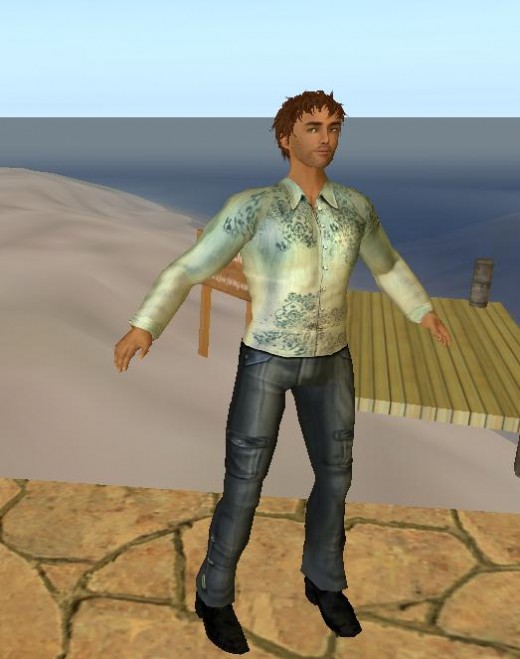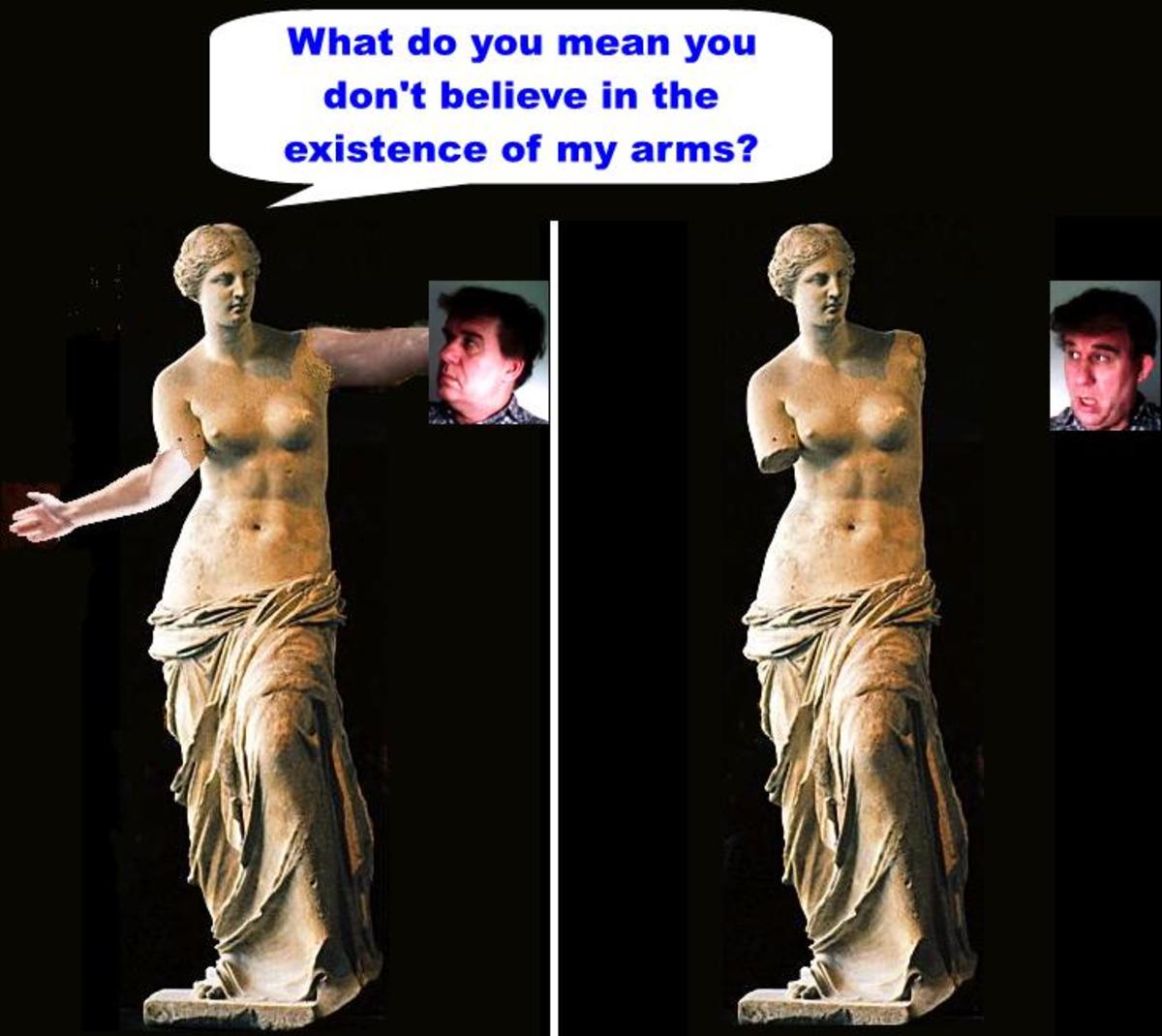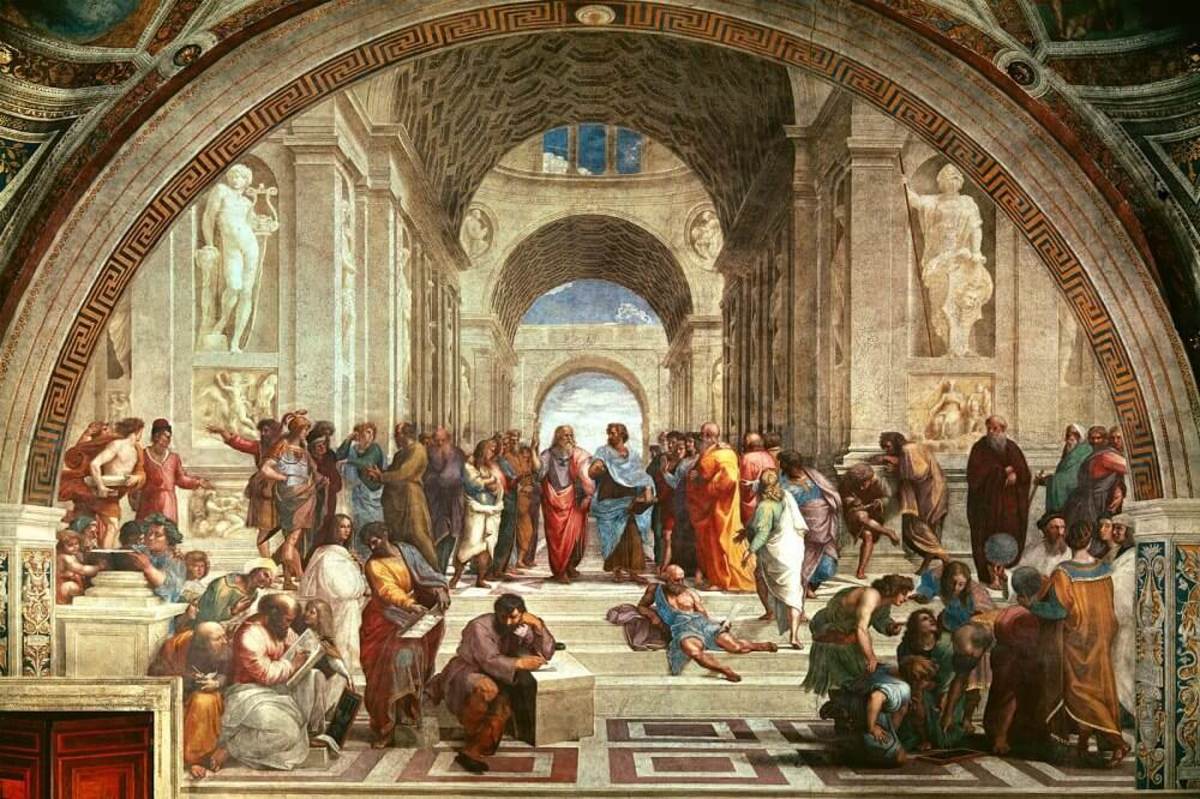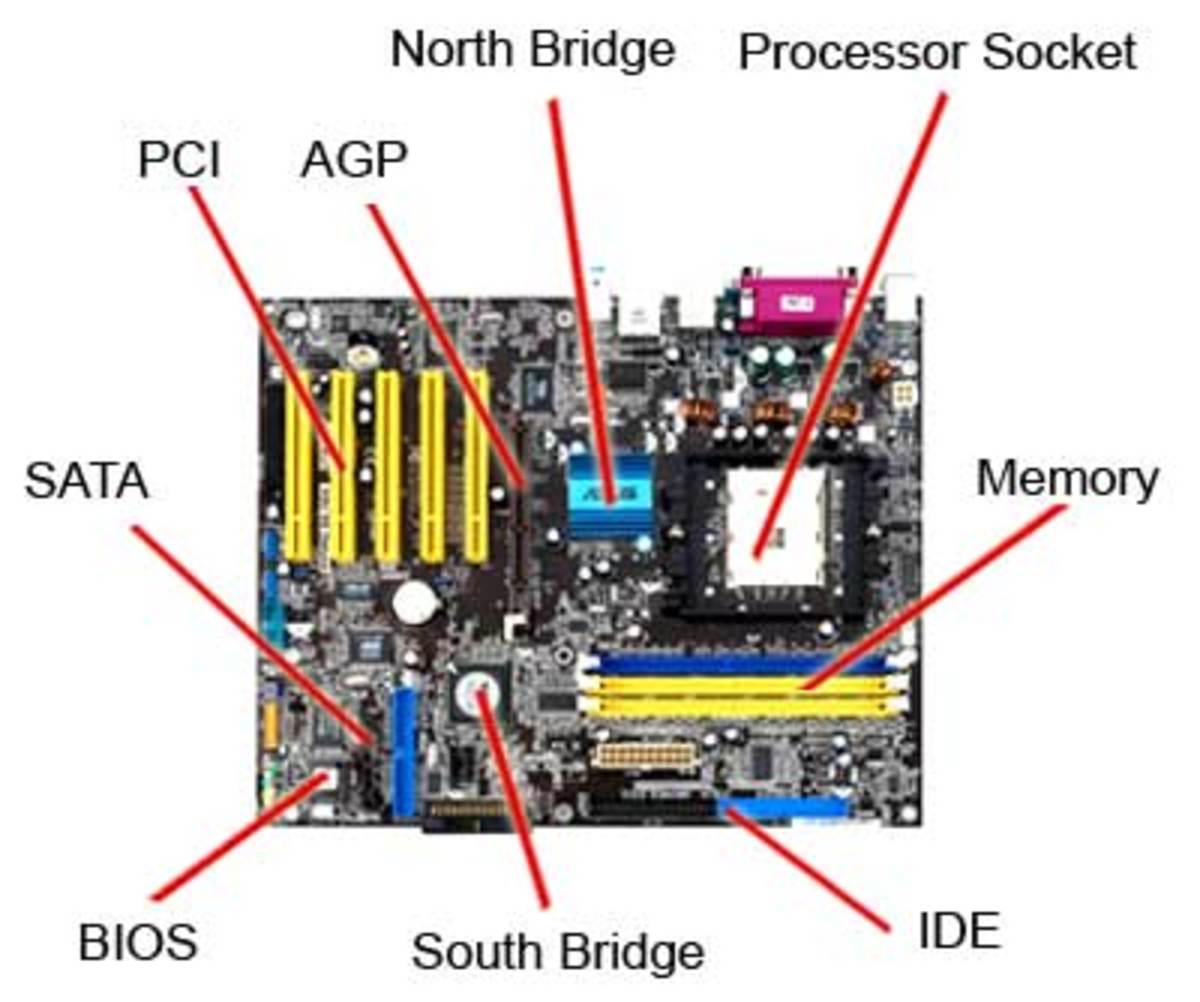Do We Live In A Virtual World
Few things turn a person off more than to have their existence questioned. After all, we are - therefore we exist. But do we really?
I'm not here to pick any fights or destroy anyone's beliefs. Instead, I'm asking you to take a ride with me on a path that might seem like pure insanity at first, but at the core you will find that your fundamental beliefs will remain intact and your sense of self unharmed. However, you will never look at yourself in the mirror the same again.
We will talk about reality, religion, wars, and miracles. We'll discuss them all with the aim at getting to the truth - do we really exist?

So Many Questions
I'm the kind of person who constantly questions everything around me. I have learned that there are no coincidences in life. Everything exists for a purpose, though it's not always one that makes itself readily known to us.That's why I started investigating the reality of our existence.
You see, there is much that doesn't make sense, and being the inquisitive person that I am, I do like everything to fit in one tight, comprehensible package. So many religions exist, where only one could possibly be right. So many wars are fought, when peace does more insure our species goes on. Sometimes it seems like we dance for the amusement of another, and yet, without stepping outside of the box we can never see this - But I assure you, you will.
So, for the next several minutes I ask that you leave all of your rational thoughts behind, as they will only hinder your journey. Enter with an open mind and trust that the journey is not meant to challenge your beliefs, but rather, help you understand why they exist. So, get comfortable and prepare to see the world as I do - through the eyes of one who chooses to question creation itself.
Life Is Nothing More Than A Simulation
I have stated this elsewhere and I will state it here as well, but many will berate than immediately as utter nonsense. And so you should, as it goes against your innate programming not to do so.
To understand why such a disbelief is needed, imagine the world around you to be nothing more than a virtual existence. To you, everything is real, but you are nothing more than a program running on someone else's PC. Gives you the shivers, right? Maybe it even makes you a bit angry. Hogwash! You know you want to say it, so do so and move down to the next paragraph.
Now, let's assume you are on the other side of the screen. Instead of the program, you are now the architect, designing a virtual world full of beings you created. Now, ask yourself what the largest ingredient is to make it all work. Give up? It's belief! After all, if your creations refuse to believe in their world they would all stand there looking up at you, as their existence would then lose all meaning to them. Without belief, a virtual world could never exist.
The Belief System
There are so many things to believe in and so many ways to believe. All claim to be the path to enlightenment, and yet only one should be the actual path. I do remember asking once why this was so, but this only created a debate on how all other paths were wrong, and the only true path was the one given by each person that responded. As you can imagine, this only confused me further, but I can now see where all paths intersect.
All beliefs are wrapped around something ruling over us. Even the atheist, who refuses to believe in any gods, believes in at least himself. The goal of all religions is to ground our existence on this world and make it all real, and for most it's also to give homage to a creator(s) which we can't physically see, feel, or touch. We believe out of faith that our creator is real. And if we all live in a virtual world, then that creator is all so very real - more so than you and I.
So, why the need for such belief? It's simple. To believe in something you must first believe in your own existence. It's a prerequisite that simply can't be skipped. And while we might often question the existence of our creator, we never question our own existence, as it would seem silly to think about that when we consider ourselves real for our ability to think.
Religion is needed for a virtual world to appear real, though not everyone needs to believe to make it work. If even a minority out there considers a creator truly exists, then those who disbelieve must expend their energy battling their cause, which denies them the energy to question their own existence.
The Need For Wars
Peace gives everyone time to think, and from constant thought can come ideas that could bring a virtual world to its knees. By keeping the virtual patrons busy thinking about other things there is little room for idle thought.
To that end, war is a perfect machine for keeping minds busy. It doesn't even need to be your war - it can be somebody else's. So long as there is no peace on Earth, there will always be the thought of a war looming over everyone's shoulder, and that further grounds us in our existence. After all, if we one day in a war then one must be real, right?
Indeed, it then makes sense where most wars have a religions or belief element to them. This tells that beliefs are a part of our programming designed to trigger conflict, further alienating us from considering our own existence.
A World Of Miracles
In the Bible alone, there are countless miracles cited. We also hear daily about people surviving ordeals that would kill any common man. Are these by the grace of God? If we live in a virtual world, then the answer is most certainly yes. Allow me to explain.
If you had the ability to design your own world, you would no doubt grow bored with it from time to time and introduce some characters to spice things up. You could include a person that heals the sick, one who survives a plane crash where everyone else dies, and countless others. Heck, you could even throw in a few alien abductions to really shake things up!
The point is, in a virtual world all of these things could be done, and they would all be very real to us. Did a man from Galilee heal the sick with his touch? It's altogether possible. Do alien abductions actually occur? Again, it's altogether possible. Remember, there are no limits to a virtual life, other than those imposed by its creator.

Of Floods And Dinosaurs
Did the great flood really occur? Was Noah's Ark real? In a virtual world, it's not only possible, but highly probable. Perhaps the creator hated how things started out and decided to wipe the slate clean. So, he picked his favorite characters and animals, placed Noah on a virtual ride in an Ark, and everything rebooted - with us none the wiser.
However, a continuity error occurs when we date the great flood and then realize the dinosaurs lived millions of years prior to that date. Biblical accounts have life starting only as far back as about 6,000 years, whereas the fossil record clearly states otherwise. How can this be rationalized?
Well, consider this. What if we are digging into previous layers that occurred before ours? What if wiping the world and restarting was our creators idea of fun - or perfection. This would explain the six mass extinctions that have occurred in the Earth's history. Oh, the scientists have found the causes (or believe they have) but if you were to wipe a virtual world clean, the most optimal way to do so would be to inflict a disaster upon the world and then sit back to watch life return from the brink of hell.
Where Is The Proof
Ah, it's proof we ask for. As we must, as we are all programmed to believe everything is real, and that any theory to the contrary must be disbelieved. Very well, we will look at the evidence.
The strongest piece of evidence is how the laws of matter apply to all normal matter, but you need to move to another set of physics (quantum physics) when you start looking at subatomic particles. As matter is made up of particles, shouldn't particles and matter behave the same? Well, they don't. Ask any physicist and they will give you a long list of the differences involved.
Another piece of evidence is the fact that we have laws at all. After all, should an apple always fall at the same velocity, given the same variables? Where is the chaos in such an event? Isn't this world based on chaos? So it would seem, the world is very orderly, as is the universe. Of special interest is the big bang theory, which is very much a smoking gun to prove the virtual world theory.
The Big Bang
The Big Bang Theory comprises of a series of mathematical formulas that make up the standard model, and this standard model explain the motion of objects in the cosmos from their first moment of inception until billions of years from this date.
It took a long time for the Big Bang to be accepted, not because the formulas didn't work, but no one could rationalize why they worked. There were, and still are, variable we know to exist, but we don't know what they actually represent. For instance, we have dark energy that causes the universe to expand, but we still aren't certain what dark energy really is. Perhaps it's more of what we actually conceive it to be, nothingness, a variable in a formula designed to make things work a certain way.
For instance, if I write a formula that says a paper airplane will fly at 10 ft/sec when shot with a rubber band, we might say it's the rubber band that imparts that force, but what if that's just an equation in the matrix? What if it's not the properties of the rubber band that make it so, but rather, the hard-coded logic?
Another issue with the big bang is the initial expansion. For a brief moment in time the universe expanded faster than the speed of light, and yet, no object in the universe has exceeded that speed limit ever since. Why?
For that matter, the universe spread itself out in a uniform manner, but we know actual explosions toss things randomly about. How did the perfection occur? There are those who would cite the work of a creator, and it's quite possible that creator made the virtual world we live in.
So, Are There Other Universes
Quite possibly, yes. Any creator would get bored over time and restart his project, but a time may also come when he wants to let it simmer to create something else. On those times our world would run on autopilot as the creator went on to design something new.
So, does this make us unimportant? Perhaps, for the moment. But if someone spends a long time creating something it's inevitable they will return to admire their creation and to tweak its existence. Regardless, the fact that we still exist inside our virtual world is proof enough that we're still admired by our creator.
How Long Have We Existed
This is a difficult question. Trillions of year, or perhaps trillions of seconds. From our perspective we could never know. A creator could easily give everyone false memories, and for all we know, this could be our first actual second of existence. On the other side of the coin, A year to us might be a thousand for our creator, and in fact, we might have experienced many different architects over time.
Regardless, the only time that should matter to us is the actual time we perceive, which brings us back to the question ... do we truly exist?
The fact is, in our own minds we do. And should we choose to disbelieve our own existence we could quickly find ourselves terminated from the program. For example, laying one's body in front of a moving train would end their virtual life.And if everyone started to do this, the creator would have no choice but to create a virtual catastrophe and start all over again. Perhaps this was the reasoning for the other six reboots on Earth - a lack of belief.
Do We Really Exist
Within our own minds and those around us - yes, we truly exist. Even if we are a part of someone else's virtual world, we still retain a free will and are able to interact as we please. We still feel pain when we are hurt and happiness when we laugh. That makes us all very real, regardless of any true existence. As such, we need not try looking up to find our creator, as he would want us to go on with our lives and live them out.
Then do we all need to become religious? Again, I see free will as ruling here. If this weren't the case, then any creator would have created a program inside all of us to make us accept religion. Not only that, we would all be steered to one religion - not many. As such, religion is a matter of choice. Just be aware that the road to salvation might be nothing more than another virtual existence - perhaps even a better one than the one you exist in now. Also, be aware that the road to salvation might not be paved with same intentions you have been taught.
Doing nothing more than keeping the virtual illusion alive might be all one needs to move on. Then again, the road might honestly be paved with good intentions. Regardless, trying to consider the rules of a virtual world is senseless, when one can never be certain what they might be. As such, consider your survival as your only rule, as this journey through the virtual world might be the only one you will ever receive.
Is There More
Yes, a lot more. In fact I wrote a whole three-part series on this. If you'd like to read more you'll find the whole series here:
- Is Life A Simulation: Part I | ALCWI.COM
Is life a simulation? We all want to believe we lead lives that are deep-seated in reality, but are they? Is it possible we are all participants in a game we can't begin to perceive or accept as real?
Remember, we are as real so long as we believe in our own existence. A virtual existence only means there are rules to the universe we live in and that a creator is responsible for setting those rules in-place. As such, we can consider ourselves God's children just as much as we can see ourselves as children of the cosmos - both philosophies work.
Reality is what we make of it, so try your best to enjoy the one you have - as it could be the only one you ever receive ...








